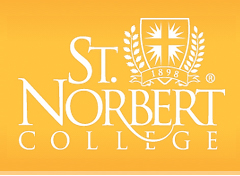Spinoza, Toleration and the First Amendmen
Location
Fort Howard Theater, F. K. Bemis International Center
Start Date
10-22-2019 7:00 PM
Description
Baruch Spinoza, the seventeenth-century Dutch philosopher of Portuguese-Jewish background, is the most important and eloquent advocate for toleration in the early modern period, even perhaps in all of the history of philosophy. But toleration is a notoriously complicated topic; it all depends on what is supposed to be tolerated, by whom, for who’s sake, and to what extent. Even in the case of Spinoza, who is nothing less than a hero in this regard, it is not entirely clear how far he believes the toleration of ideas should be carried. In this lecture, we will consider the issue of toleration in Spinoza’s philosophy from two perspectives: First, we will examine a common conception about Spinoza’s views on the relationship between religion and the state and show why it is, in fact, a misconception—that Spinoza is not, in fact, who he is very often taken to be on the question of religious toleration. Second, we will see that Spinoza, despite his well-deserved reputation for being strong defender of toleration in general, in fact does not go far enough, at least when we bear in mind the freedoms enshrined in the First Amendment of the United States Constitution, and makes a potentially troubling concession to the legitimacy of state censorship.
 COinS
COinS
Spinoza, Toleration and the First Amendmen
Fort Howard Theater, F. K. Bemis International Center
Baruch Spinoza, the seventeenth-century Dutch philosopher of Portuguese-Jewish background, is the most important and eloquent advocate for toleration in the early modern period, even perhaps in all of the history of philosophy. But toleration is a notoriously complicated topic; it all depends on what is supposed to be tolerated, by whom, for who’s sake, and to what extent. Even in the case of Spinoza, who is nothing less than a hero in this regard, it is not entirely clear how far he believes the toleration of ideas should be carried. In this lecture, we will consider the issue of toleration in Spinoza’s philosophy from two perspectives: First, we will examine a common conception about Spinoza’s views on the relationship between religion and the state and show why it is, in fact, a misconception—that Spinoza is not, in fact, who he is very often taken to be on the question of religious toleration. Second, we will see that Spinoza, despite his well-deserved reputation for being strong defender of toleration in general, in fact does not go far enough, at least when we bear in mind the freedoms enshrined in the First Amendment of the United States Constitution, and makes a potentially troubling concession to the legitimacy of state censorship.

